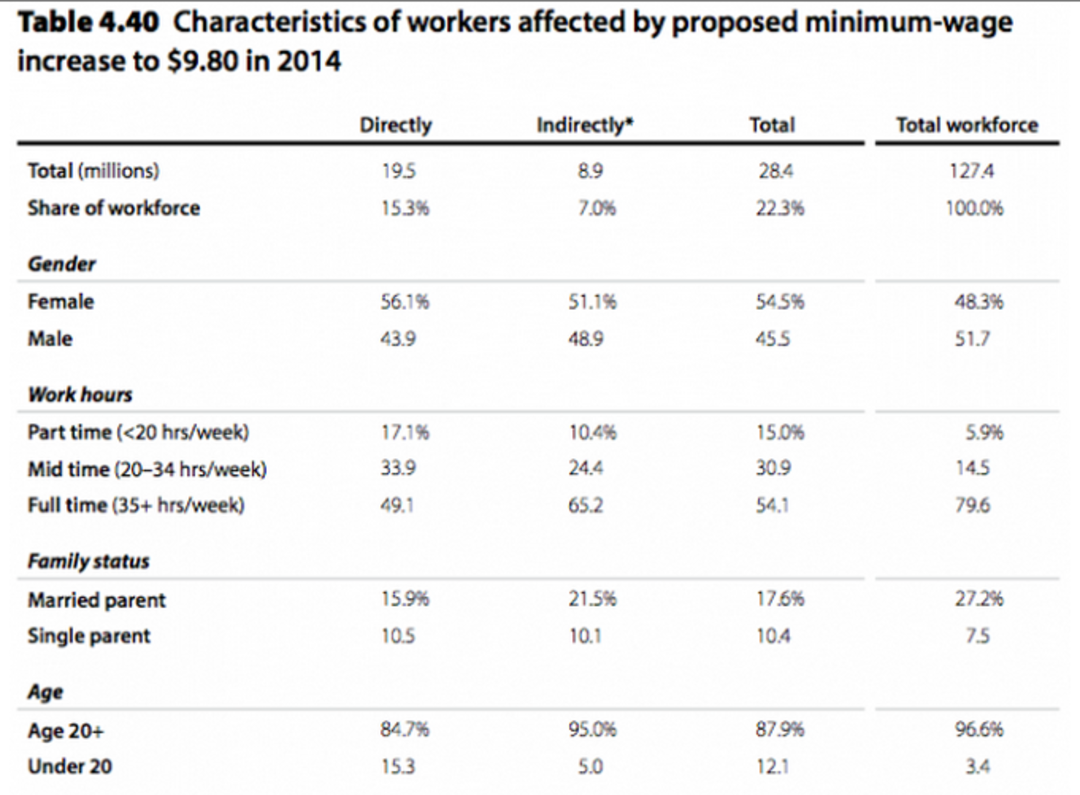Raising the Minimum Wage Won't "Devastate" Businesses

The C is for Crank
In an opinion piece for the Seattle Times' politics blog today, editorial board member Sharon Pian Chan argues that a $15 minimum wage for hospitality workers in SeaTac will "devastate" immigrant businesses, but offers not one fact to support that claim. Instead, she piles anecdotes on top of hypotheticals on top of straw men, with some bootstraps thrown in for good measure. (The Times endorsed a "no" vote on the SeaTac measure.)
Straw men:
Supporters of the $15 campaign say it would help low-income people and families working in these jobs. That presumes poor people are a monolithic group, all of whom want to work those jobs for the rest of their lives.
No, it doesn't. The entire premise of a higher minimum wage is that low-income people and families working in these jobs" can't currently afford to live on minimum wage, not that they aspire to keep making minimum wage forever. It's condescending (and inaccurate) to claim that those who support a $15 minimum think it should be a ceiling as well as a floor. The people in "these jobs," believe it or not, might want to make enough to survive now and also hope for better in the future. People who don't believe that's true tend to also believe that poor people must suffer as an incentive to better themselves.

Source: EPI
Anecdotes:
Pian Chan says her parents showed up in the U.S. in 1975 with two suitcases and "bootstrapped" their way into a series of successful businesses—businesses that, she says, wouldn't have been possible if they'd had to pay their workers $15 an hour. The implication is that immigrant businesses, in particular, couldn't survive under a higher minimum wage.
Businesses models that rely on taxpayer subsidies to make their margins are hardly a foundation for a sustainable economy.
But what about the workers who work in such businesses, making minimum wage (currently $9.19 an hour in Washington and $7.25 at the federal level)? A worker making the state minimum, assuming they can get full-time work, makes just over $19,000 a year. Supporting a family on that kind of income (28 percent of minimum-wage earners are parents) is virtually impossible without government aid—housing subsidies, food stamps, and utility assistance, to name a few. (Just this past week, McDonald's was caught on tape advising an impoverished employee to seek federal benefits, and Walmart employees repeatedly top the list for U.S. food stamp and Medicaid recipients.) And that money comes out of all of our pockets.
Businesses models that rely on taxpayer subsidies to make their margins are hardly a foundation for a sustainable economy.
And fact-free assertions:
"What determines whether entrepreneurs can start businesses, and expand, is the minimum wage. A higher minimum wage would sound the death knell to entrepreneurs. It would drive them out of SeaTac, Seattle and into the suburbs."
This hypothetical "death knell" is a classic evidence-free assertion: If you do this thing I don't like, something really bad will happen. How do I know? Trust me.
Pian Chan does point to a single study, by a conservative economist who happens to be one of the most prominent voices in the U.S. against raising the minimum wage. (In reality, many studies have shown no negative effect on unemployment from increasing the minimum wage—and the evidence is, at worst, mixed.) And that study focused on teenagers, not low-income families.
Chan's arguments are familiar. They come up every time politicians or activists agitate to raise the minimum wage, from the local to the federal level. And every time, the predicted disaster—the end of small businesses, economic devastation, mass unemployment—fails to strike. History, it turns out, is a better guide to policy than anecdotes.




